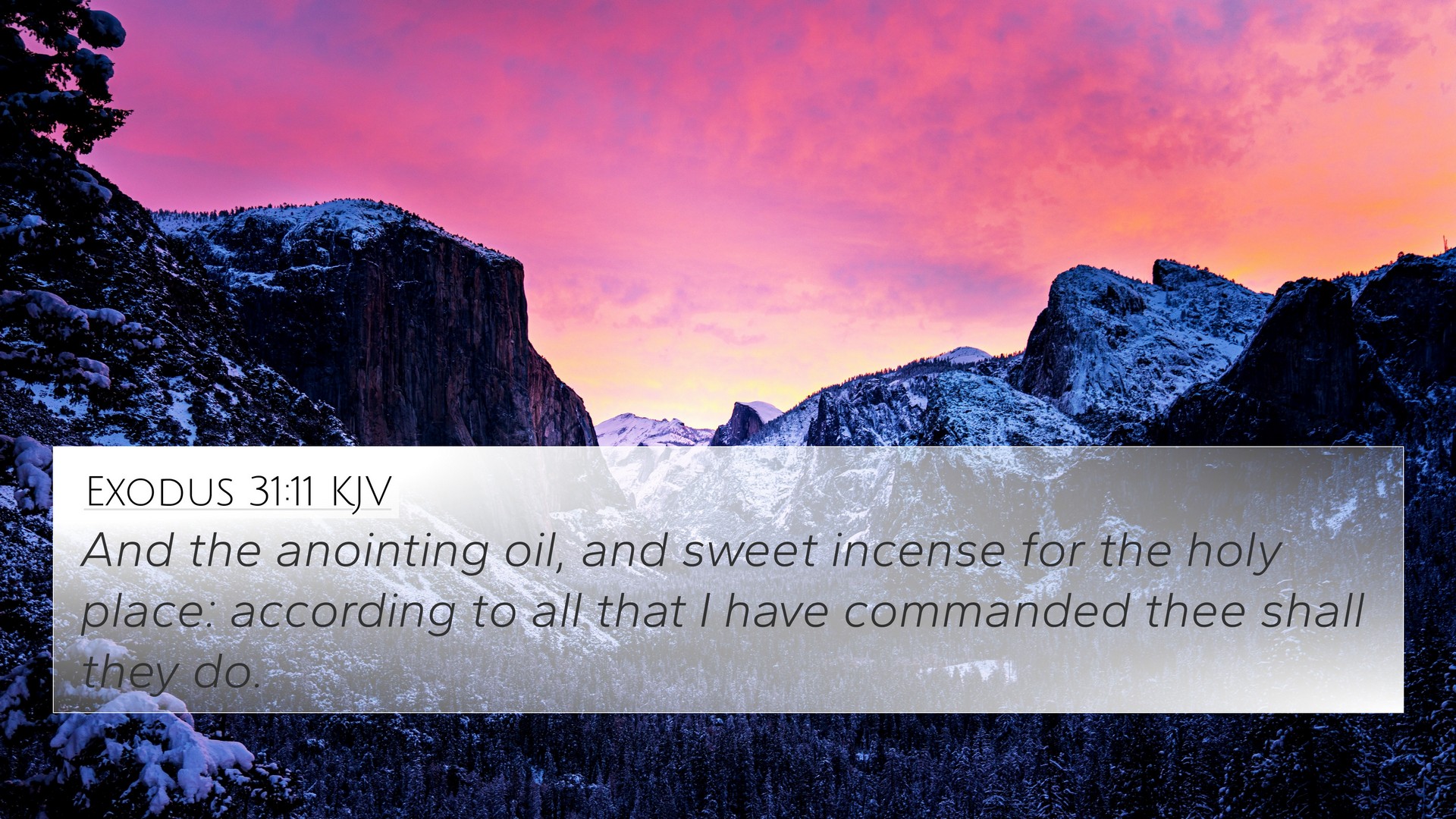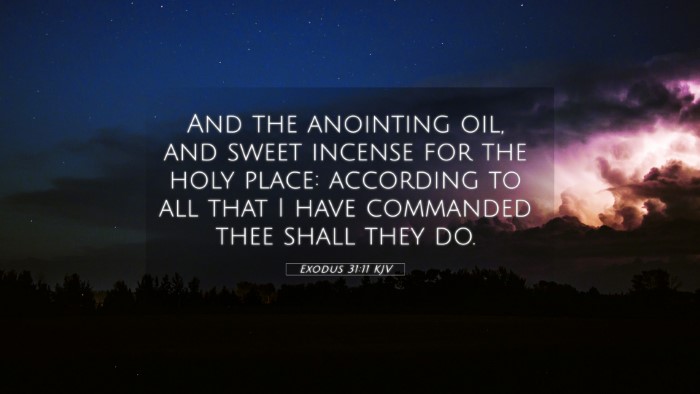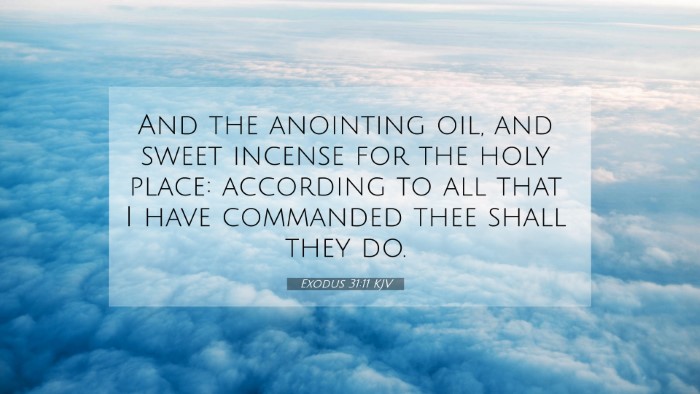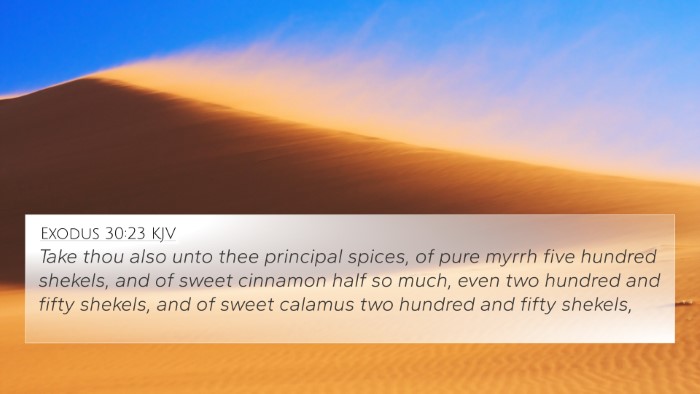Understanding Exodus 31:11
Exodus 31:11 reads: "And the anointing oil, and sweet incense for the holy place: according to all that I have commanded thee shall they do."
This verse is significant within the context of the instructions God gives to Moses regarding the building of the Tabernacle and the proper offerings and worship practices associated with it. Below are the combined insights from public domain commentaries that provide a deeper understanding of this verse.
Verse Meaning and Interpretation
According to Matthew Henry, this verse emphasizes the completeness and obedience required in the worship of God. The mention of "anointing oil" represents the sanctification of people and objects for holy purposes. The use of "sweet incense" symbolizes prayers rising to God, and the specific details of worship highlight the importance of adhering strictly to God's commands.
Albert Barnes discusses the importance of the materials mentioned—oil and incense—as symbols of divine grace and prayer. He notes that these items are not mere rituals but are imbued with spiritual significance. The meticulous nature of the instructions reflects the holiness required in approaching God and engaging in communal worship.
Adam Clarke provides insight into the cultural significance of these elements. The anointing oil signifies a special consecration by God, marking individuals and items as distinct and sacred. Clarke also points out that the reference to incense indicates a fragrant offering to God, enhancing the worship experience within the Tabernacle environment.
Cross-References to Exodus 31:11
- Exodus 30:25-38 - Details on the preparation of the holy anointing oil and incense.
- Leviticus 8:10-12 - The anointing of Aaron and his sons as priests, emphasizing the importance of the anointing oil.
- Revelation 5:8 - Symbolic parallels between incense and the prayers of saints.
- Hebrews 9:2-4 - The layout of the Tabernacle and items within it, including the altar of incense.
- 1 Peter 2:5 - Believers as living stones built into a spiritual house, akin to the holy offerings in the Tabernacle.
- Psalm 141:2 - Prayer likened to incense, indicating the sweet aroma of worship before God.
- Philippians 4:18 - The connection of offerings made unto God as a sweet-smelling savor.
Thematic Connections and Inter-Biblical Dialogue
This verse, along with its surrounding passages and related verses, creates a rich tapestry of themes regarding worship, consecration, and the nature of God’s holiness.
By cross-referencing Bible verses related to Exodus 31:11, one can better understand how these elements are woven throughout Scripture, showing the consistency of God’s instructions to His people across both the Old and New Testaments. For example:
- How to find cross-references in the Bible: Utilize a Bible concordance or cross-reference guide to trace the themes of consecration and offerings back throughout Scripture.
- Identifying connections between Old and New Testament: Explore how the acts of worship outlined in Exodus are fulfilled in the New Testament through the sacrifice of Christ.
- Cross-referencing Psalms with New Testament teachings: Understand how the themes of prayer and worship continue through both the Psalms and the writings of the Apostles.
- Detailed cross-reference between Gospels: Analyze how each Gospel contributes to the understanding of Jesus’ role as the ultimate fulfillment of the sacrificial system.
Conclusion
Exodus 31:11 encapsulates profound truths about worship and the significance of obedience to God's commands. The elements of oil and incense demonstrate not just the rituals but the relational aspect of a covenant community worshiping a holy God. By exploring interconnected Bible verses, readers can deepen their understanding of how worship evolves and is transformed through the Gospel, revealing the consistent nature of God’s desire for relationship with His people.




